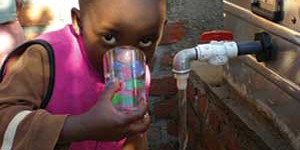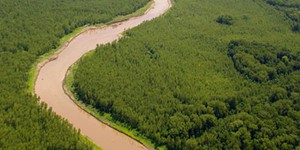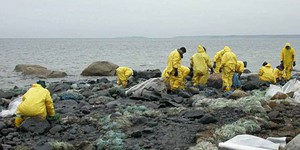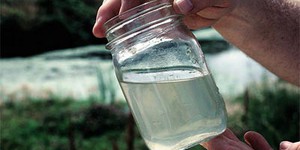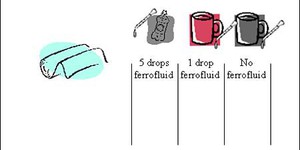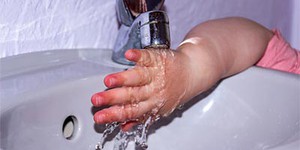Science Projects (854 results)
Browse Science Projects
Over 1,200 free science projects for K-12. Browse by subject, grade level, or try our Topic Selection Wizard to find your winning science project. With science projects in 32 different areas of science from astronomy to zoology, we've got something for everyone!
Let us help you find a science project that fits your interests, with our Topic Selection Wizard.
15 Best Science Projects - Our Scientists’ Picks
|
Select a resource
Sort by
|
Living in the industrialized world, like the United States, we are fortunate because we don't have to worry about the quality of our drinking water. Your community has the means to clean and provide water to you. But in many parts of the world, people don't have this luxury. Whether it is due to war or poverty, the lack of clean water leads to many health and social problems. In this environmental engineering science project, you will learn about different methods to filter out impurities in…
Read more
Featured
Have you heard that garlic powder is supposed to inhibit the growth of bacteria? Which do you think would make a better disinfectant: a solution of garlic powder or a solution of bleach? This project shows you a straightforward way to compare the effectiveness of different disinfectants (or other antimicrobial agents), by measuring zones of inhibition on a culture plate.
Read more
Your drinking water probably started out brown and muddy. Are you surprised? Maybe you were picturing it flowing from a clean mountain spring instead? All over the world, including in 68% of American homes, people get their drinking water from rivers, lakes, and other surface waters. This water is filled with dirt, debris, and other contaminants as it travels hundreds of miles. So, how does your drinking water go from brown and muddy to crystal clear? Often, flocculants—substances that…
Read more
New
Drones are small, fast, and maneuverable - this can make them very hard to knock down! Check out this Mark Rober video where he explores both how professional defense companies and some backyard YouTube engineers tackle the problem of knocking drones out of the sky. Can you take this engineering challenge on yourself? What methods can you devise to take down a drone? Which one works the best?
Drones can be expensive, and you probably do not want to risk damaging a $1,000 drone for your science…
Read more
Engineers are trying to tackle the world's ocean pollution problem using robots. Some robots, like Mr. Trash Wheel and the ship featured in this Mark Rober video, are stationary and collect trash as it flows out of rivers before it gets into the ocean. Others, like the Jellyfishbot, are mobile and can squeeze into narrower spaces to collect trash:
Can you build and test your own trash-skimming robot? If you do not have access to a natural body of water to test it in, you can use a bathtub or a…
Read more
Have you ever seen news coverage or other pictures of an oil spill in the ocean and wondered how all of that oil could be cleaned up? Oil spills can devastate wildlife by covering them with oil, and they can damage our precious water resources by contaminating them with oil. Part of the problem of dealing with oil spills is that the oil can be challenging to clean up. In this science project, you will test the absorptivity of different materials (called sorbents) to discover which ones are best…
Read more
It is important to ensure that we all have good clean water to drink that is not contaminated by heavy metals or chemicals. One common pollutant in a water supply is lead in old pipes or paints that can leach into the water and cause lead poisoning. There are different kits available for testing the presence of lead and other contaminants in water. Test your water supply, and also the water in some local ponds, lakes or streams. The same contaminants that can harm you can also harm wildlife. …
Read more
New
If someone asks you to draw a picture of a doctor, lawyer, or engineer, what first pops into your mind? The race and gender of the person you imagine might be shaped by your personal life experiences, such as whether you have family members in those professions, or what representations of them you have seen on TV or online. What do you think will happen if you ask an artificial intelligence (AI) program to generate the picture instead? Will pictures generated by AI reflect the true real-world…
Read more
The enormous task of cleaning up oil spills in oceans and seas has burdened industry, government, and environmentalists for decades. The cleanup is almost always difficult. It involves great amounts of time, resources, and money to remove the oil from the water, and the cleanup is often only partially successful. Today, however, scientists are coming to the rescue, developing a new technique that combines nanotechnology and magnetism. In this science project, you will test the proposed…
Read more
Have you ever thought about how fortunate you are to have safe and clean water coming out of your faucet? Many people in undeveloped nations don't have this luxury. But does that mean they can't have clean water at all? Is there an inexpensive way they could use to make their own clean water? In this microbiology science fair project, you will investigate whether or not sunlight can disinfect contaminated water.
Read more
Some plants grow only in water-logged environments. These plants are usually native to wetlands and are important for the sustainability of aquatic ecosystems. Wetland ecosystems are very fragile and susceptible to the toxic dumping of sewage and fertilizer run-off from neighboring farm land. One very common aquatic plant called duckweed inhabits many wetland marshes. Duckweed grows by asexual reproduction and floats at the surface of the water with tiny roots extending into the water below.…
Read more
Of course it can, you say: ice is water and ice floats! And you're right. But we're talking about water in the liquid phase (the title reads better without getting overly specific). So how about it? Can liquid water float on water? Check out this project to find out.
Read more
How much water do you use? Conserving water can do more than save your parents' money, it can also save freshwater ecosystems, wetlands, and watersheds. Some companies are trying to help fix the problem by making low flow faucets and showerheads. How well do they work? How much water can you save? Go to the hardware store to buy a few of the water saving products. Compare the amount of water that you run over a period of time to determine how much water you can save. Which water saving…
Read more
|



